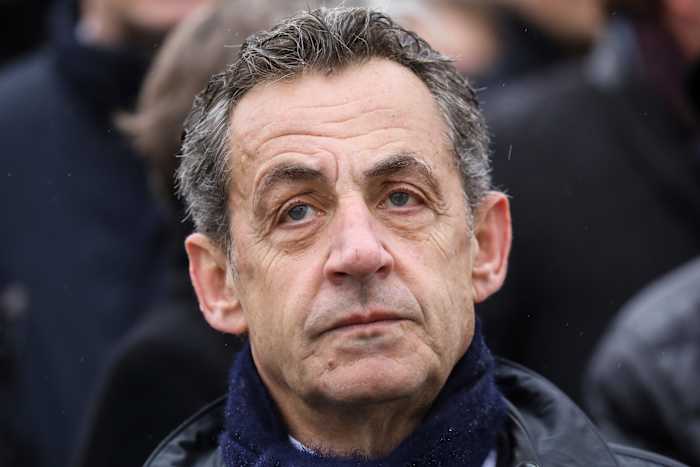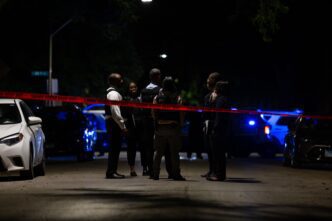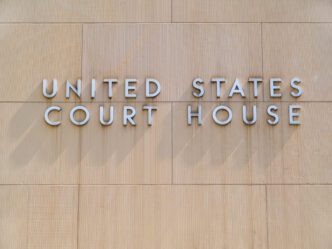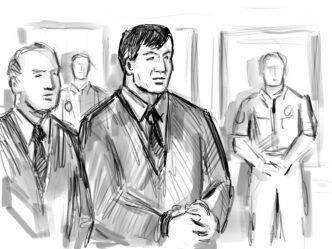Former French President Nicolas Sarkozy is standing trial over accusations of illegal financial backing for his 2007 presidential campaign from Libya’s late leader Moammar Gadhafi. The case, often referred to as the ‘Libyan case,’ is one of the most prominent controversies involving Sarkozy, and the proceedings are expected to last until April, with a verdict to follow.
The charges against Sarkozy include passive corruption, unlawful campaign financing, concealment of embezzlement, and involvement in a criminal association. These charges could lead to a prison sentence of up to 10 years. Sarkozy, who was president from 2007 to 2012, denies any misconduct. He is one among 12 defendants, including three past ministers, involved in the trial. One key figure, Franco-Lebanese businessman Ziad Takieddine, accused of acting as an intermediary, has sought refuge in Lebanon and is not anticipated to appear in court.
Sarkozy’s legal representative, Christophe Ingrain, expressed a strong desire for an objective examination of the facts, “There is no Libyan financing of the campaign,” he stated. The case came to light in March 2011 when a Libyan news source claimed that Gadhafi funded Sarkozy’s campaign. In an interview, Gadhafi alluded to providing the funds necessary for Sarkozy’s presidential success, though no specific amounts were disclosed.
In 2007, Sarkozy had warmly received Gadhafi in Paris. However, Sarkozy later became a proponent of military intervention in Libya during the Arab Spring pro-democracy movements in March 2011. Gadhafi was killed by opposition forces later that year, ending his rule over Libya.
Complicating the matter, a French online news outlet, Mediapart, released a document in 2012 purportedly from the Libyan secret service, suggesting an agreement to finance Sarkozy’s campaign with 50 million euros. Sarkozy refuted this claim, branding the document as a fabrication and pressing charges for forgery and the dissemination of false information. Despite Sarkozy’s objections, French investigative judges noted in 2016 that the document seemed authentic, although no conclusive proof of the transaction exists.
Investigations into the funding also examined multiple visits to Libya by Sarkozy’s allies, including Claude Guéant, his chief of staff, who held numerous meetings with Takieddine. In 2016, Takieddine asserted to Mediapart that he brought three cash-filled suitcases from Libya to the French Interior Ministry, a statement he later recanted. This prompted a separate investigation into potential witness tampering, as magistrates suspected efforts to influence Takieddine to exonerate Sarkozy.
The trial’s other defendants include three of Sarkozy’s former ministers and an advisor close to him. Allegations against other figures suggest their involvement in financial transfers purportedly from Libya, involving entities like Gadhafi’s chief of staff and two Saudi billionaires. Notably, Gadhafi’s former oil minister, Shukri Ghanem, who died under mysterious circumstances in Vienna, was also suspected of involvement and had records detailing Libyan disbursements.
Abdullah al-Senoussi, Gadhafi’s spy chief, confirmed to investigators that funds were indeed allocated for Sarkozy’s campaign. Al-Senoussi, charged with war crimes, is imprisoned in Libya. Meanwhile, Sarkozy has previously been convicted in two other cases involving corruption and illegal campaign financing.
The Libyan case holds significant weight as it could potentially overshadow Sarkozy’s political legacy. Recently, France’s Court of Cassation upheld a corruption conviction against Sarkozy related to wiretapped phone calls during the Libya investigation, leading to a sentence of house arrest.
Sarkozy’s trial not only questions the integrity of his 2007 campaign finances but also challenges his broader political legacy. With multiple convictions already on record, this high-profile case could have far-reaching implications for both Sarkozy and international political financing norms.
Source: News4jax








